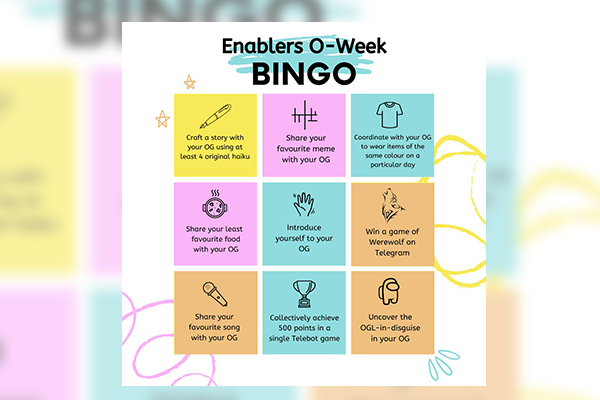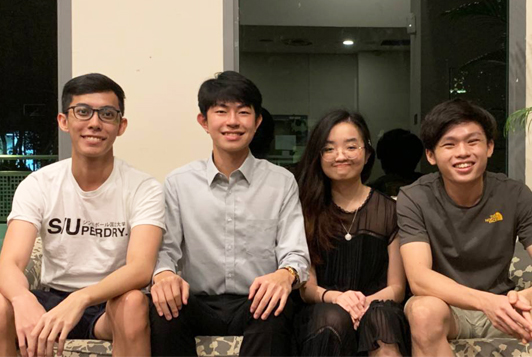From Green Corridor trails to Tasting Tours, many of us may have rediscovered the charm of Singapore in recent COVID-19 times due to the worldwide travel ban. There are hidden haunts in the city that you may not have explored prior to the pandemic. Despite the kaleidoscope of cultures and religions in Singapore, you could say that opportunities to explore places of worship and appreciate its well-preserved architectures are few and far between.
To learn about the diverse influences of Singapore’s history and culture, the Office of Student Affairs (OSA) co-organised an hour livestream tour for students. Led by experienced local guides, Jason Loe and Jeremy Koh from Tribe Tours, our participants logged on and took part in live online tours to visit Waterloo Street and a synagogue from the comfort of their own homes.

The first stop was a traditional Chinese provision shop selling a variety of dried food items such as fish maw, sea cucumber and Cordyceps sinensis. Some students who saw these items for the first time were shocked at how expensive sea cucumbers are. Some sets cost as much as a few hundred dollars! “Why do the sea cucumbers differ so much in price?” one curious student asked. The shop owner explained that price varied for different grades.
As Jeremy ventured down the street, three places of worship came into sight – the Kwan Im Thong Hood Cho Temple, the Sri Krishnan Temple and the Church of Saint Peter & Paul. At every location, Jeremy and Jason introduced small nuggets of interesting knowledge. One student commented that her biggest takeaway was learning about the process of getting a divination lot interpreted at the Temple. They then visited the Maghain Aboth Synagogue, where they were shown around by an Israeli guide who was doing her national service in that synagogue in Singapore.

At the end of the tour, participants reflected on their experiences. Muhammad Fitri Bin Fauzi, a year three student from the Faculty of Science, said: “It was a great experience as I have always wanted to visit another house of worship but have always been afraid of coming off as being disrespectful. This online tour provided the perfect gateway. When at places of worship, I feel that people of other faiths may not be aware of certain customs and religious traditions that they have to adhere to and would therefore potentially offend a particular religion. An example would be the donning of the hijab. It is a religious guideline for Muslim women to don the hijab when visiting the mosque but does this requirement extend to people of other faiths? In this case people of other faiths may not be privy to the sensitivities of the Muslim community and may be cautious about offending them by choosing not to visit.”
Believers from the same faith may have different practices from country to country. One international student observed that the Buddhist temples in Singapore and Myanmar looked vastly different and another local student added that the denominations practised by a majority of the Buddhists in both countries are also different.
Nam Minh Quan, a year one student from the School of Computing, found the tour to be “very immersive and interactive.” He said: “I felt like I was watching a high-value production video but accompanied by a live host who took questions from the audience. I am grateful and take pride in receiving an education in a harmonious society. The reflection segment of this tour allowed me to look back and find similarities and differences between my own culture in Vietnam and Singapore. I hope that there will be more activities like this in the future, whether in-person or online.”
Share:
Contributor
Community Engagement







